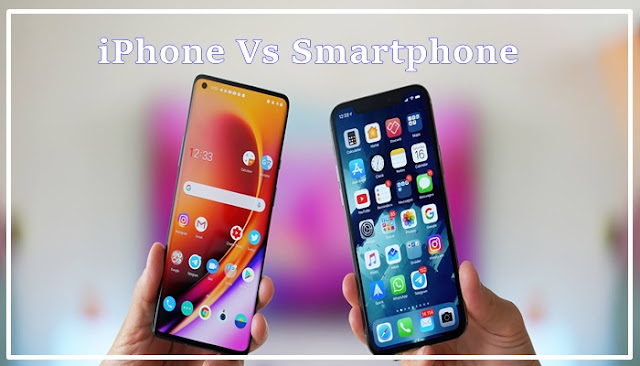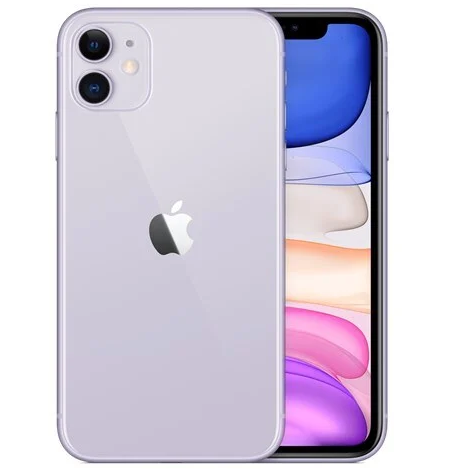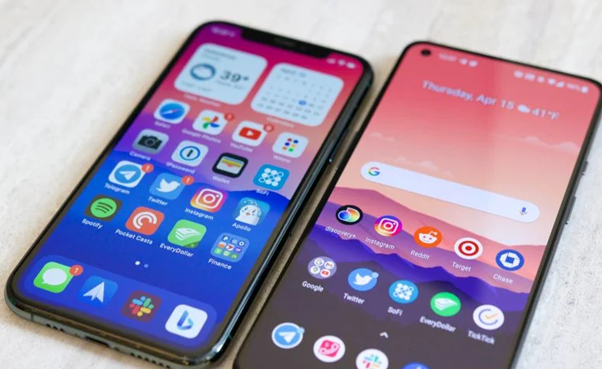Overview
If you don’t have an iPhone, well, you don’t have an iPhone.
Though this famous iPhone campaign was out quite a few years ago, and some could hear heavy chest-thumping in it, it still holds true today!!!
Indisputably, other new breeds of phones are improving in every aspect of smartphone technology. Still, the popularity of iPhones is only surging since the first-generation iPhone was rolled out in 2007. Case in point, since 2017, the total number of active users of iPhone has risen by 22.85%, with the number of iPhones in use increasing by 186 million.
That brings us to a very basic question many people get caught up in and end up confused by the two terms, smartphones and iPhone. And that question is What is the difference between an iPhone and a smartphone?
Let’s settle this while I walk you through the difference between an iPhone and a smartphone without getting into the hardcore technical details.
But before that, let’s get a couple of terms right.
What Is a Smartphone?
Go back to your first cell phone- it might have been a sturdy Nokia handset or a slick Motorola flip phone. Back then, we found these cell phones really cool as they were considered luxury items only a few possessed.
Then they were rapidly outshined by our very own smartphones, so much so that today, smartphones are an integral part of most people’s daily routine.
Today’s smartphone is a smart, handheld device that looks like a mobile phone and functions like a mini-computer. Thanks to the advanced operating system, they exhibit extraordinary mobile computing capabilities, more storage space, greater connectivity options compared to basic cell phones.
Most smartphones are jampacked with exceptional features that make them mimic the functionalities of a computer. Standard smartphone features include phone, touch-screen interface, Bluetooth, camera, Wi-Fi capability, multimedia players, video conferencing software, online browsing, GPS navigation, access utilities, and many exciting apps.
Smartphone makers also offer different custom applications that enhance a smartphone’s ability to perform various tasks. Think of smartphones equipped with innovative sensors like accelerometers and gyroscopes. Moreover, high-end smartphones run on powerful CPUs that confer them brilliant processing speed at low power consumption. It’s awe-inspiring to see how smartphones have evolved with the latest technology over the last 30 years.
Also Check >>>> Aesthetic Instagram Icon for iPhone
What Is An iPhone & Is It A Smartphone?
Technically, iPhone is a smartphone. But it’s not any smartphone.
Despite not being the first smartphone, it was the first intuitive device offering multiple never-before functionalities in a phone. Soon other companies followed suit, and tons of other smartphones came into the market.
iPhone is a flagship product exclusively designed and marketed by Apple incorporation. Apple’s iPhone can be regarded as one of the reasons for boosting the popularity of smartphones in today’s time. It has garnered a huge, loyal fanbase due to its next-gen features and amazing aesthetic appeal.
The visionary and co-founder of Apple, Steve Jobs, was the person behind this innovative iPhone line-up that inspired revolutionary breakthroughs not just in the smartphone ecosystem but also in the telecom industry.
On the surface, the iPhone share many design similarities with other smartphones and fulfil the basic criteria of what a smartphone should have. Hence, this may lead to many people thinking that both devices are similar.
But in reality, they are completely different from each other because, with every new launch, iPhones keep initiating new trends and set new technological standards. And this very fact makes them stand out in the crowd of smartphones.
People often compare iPhones to other Android phones, particularly Samsung. To answer this question, keep reading the article: Which phone is better, Apple or other Smartphones?
Also Check >>>> Setting Icon Aesthetic
What Is The Difference Between An iPhone And A Smartphone?
✔️ Operating system (OS)
Smartphones run on Operating systems that enable the device to manage different programmes. Apple has developed and reserved a proprietary OS, iOS, for its products, including iPhone. On the other hand, all other greater brands of smartphones employ Android, which tops the global market share with a whopping 74.15%.
Now the thing is, iOS is optimized for the few devices made by Apple. On the other hand, Android is a Linux kernel-based open-source OS, which means that OEMs can change it to implement on different hardware in different devices.
✔️ Processor
The prime reason that iPhone performs smoother than other smartphones is its superior processors. With bigger processors, it is possible to include additional hardware resources that significantly improve iPhone’s performance. Moreover, its closed ecosystem enables complete control over the designing and manufacturing of processor chips.
To be precise, iPhone uses A-series chips, A13 and A14 being the latest of them, which are incredibly powerful compared to the new flagship Snapdragon 888 processor of Qualcomm powering some top-of-the-line smartphones devices.
Also Check >>>> Aesthetic Camera Icon
✔️ Apps
In the first quarter of 2021, the Google Play app store had the biggest number of available apps touching the mark of 3.48 million apps for android smartphone users. In comparison, the apple app store became the second-largest app store with around 2.22 million apps available to iPhone users.
This gap arises mainly due to android’s open source policy and access to the third-party app store and Apple’s strict control over available apps.
But the same trend does not reflect in the average app price; that is an average charge a user pays to download an app. In the third quarter of 2020, the global consumer paid 19 billion U.S. dollars for apps from the Apple app store, outnumbering 10.3 billion U.S. dollars of the Google play store.
Also Check >>>> Message Aesthetic Icon
✔️ Security
Not that smartphones are frail at safeguarding your data from different types of security threats. In fact, their security updates are becoming more consistent to ensure that your phone and data is safe.
Yet, Apple’s difficult-to-penetrate closed ecosystem, consistent software updates, strict app store, and superior touch ID sensor make iPhone a lot more secure for users and harder for hackers to target iOS.
✔️ Cache memory
Cache memory makes a significant difference to a smartphone’s performance. It is faster than RAM, allowing faster data exchange with the CPU. Thus, smartphones with large cache memory undoubtedly process faster and perform better.
Specifically, most smartphones with ARM architecture processors’ cache memory generally range between 1 -2 MB as opposed to iPhone, which has 4 or 8 MB cache memory. Hence, despite having limited RAM, iPhones perform way better than smartphones having huge RAM.
In a nutshell, from a technical point of view, even if iPhone is a smartphone, it commands a different level of recognition than any smartphone. It’s way ahead with respect to innovation, technology, and performance.
Author Bio: Ankit thakor is a marketer by trade and a football player by passion. He is a Saas Marketing Specialist at SoftwareWorld. He specializes in using compelling content to capture consumer dollars for world-class SaaS brands.




No comments:
Post a Comment